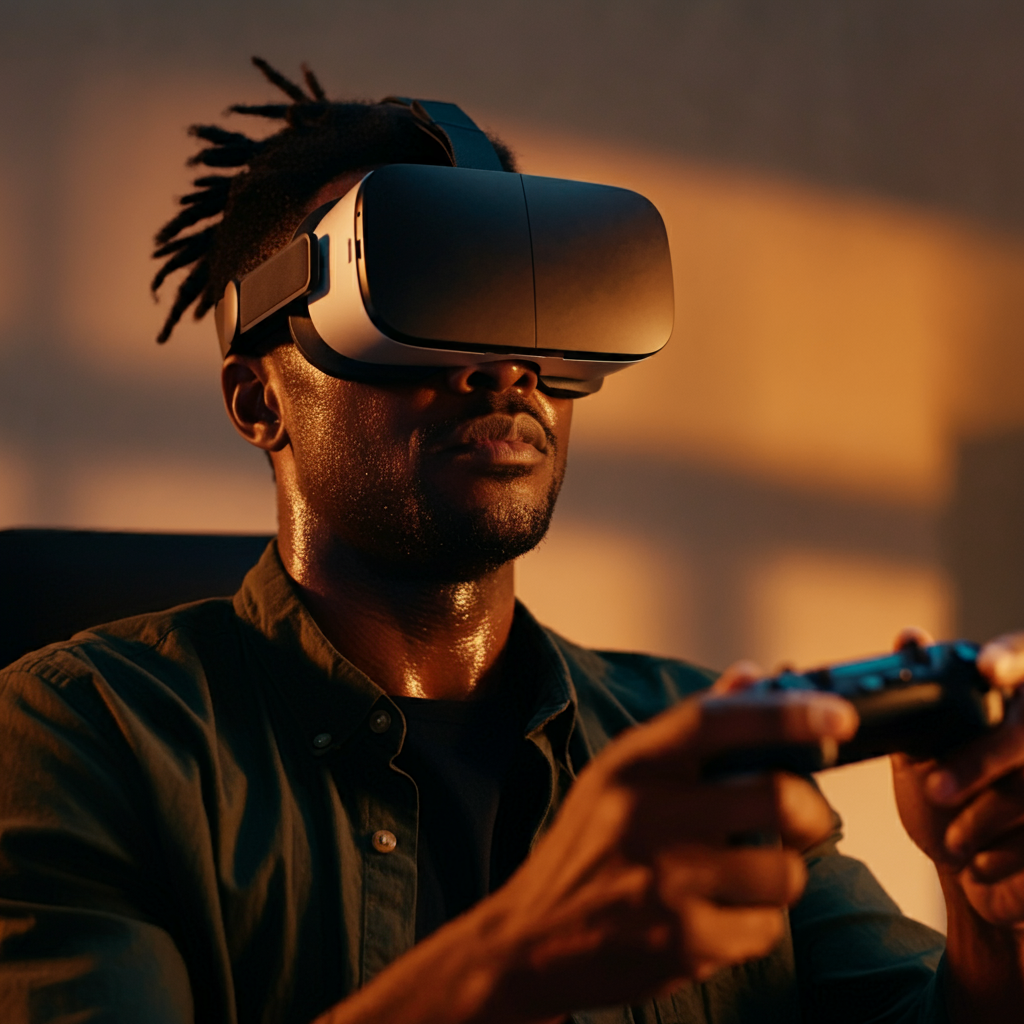Virtual reality (VR) has become a game-changer in competitive gaming, offering unparalleled immersion and interactivity. However, this heightened immersion can have significant effects on player stress and performance, particularly in high-stakes tournaments. Understanding these effects is crucial for players, coaches, and organizers as VR continues to influence the competitive gaming landscape.
One of the primary ways VR immersion impacts player stress is through its intense sense of presence. Unlike traditional gaming setups, where players view the game from a distance, VR places them directly within the virtual environment. This immersion can amplify the pressure and intensity of competitive situations. The feeling of being physically present in the game can heighten stress levels, as players experience the game’s challenges in a more visceral way. This heightened emotional response can lead to increased anxiety, which may affect performance negatively if not managed properly.
The stress induced by VR immersion can manifest in various ways. Players may experience heightened physiological responses such as increased heart rate and adrenaline levels, which can contribute to stress and fatigue. Additionally, the immersive nature of VR can blur the lines between the virtual and real worlds, leading to potential cognitive overload. This cognitive strain can impact a player’s ability to focus, make quick decisions, and execute complex strategies effectively during high-pressure moments.
Conversely, VR immersion can also offer potential benefits for performance under stress. The realistic and engaging environment of VR can enhance concentration and immersion, helping players to stay focused and engaged. For some players, the immersive experience can create a flow state, where they become deeply absorbed in the game and perform at their best. This state of deep engagement can lead to improved decision-making and strategic execution, as players are fully immersed in the virtual world and less distracted by external factors.
The impact of VR immersion on performance can also vary depending on the individual player’s experience and adaptation to the technology. Players who are well-versed in VR gaming may find that the immersion enhances their performance by providing a more intuitive and responsive interface. On the other hand, players who are less familiar with VR technology may struggle with the learning curve and adaptation, potentially leading to increased stress and decreased performance.
Coaching and training strategies are evolving to address the effects of VR immersion on stress and performance. Coaches are increasingly focusing on helping players acclimate to VR environments and develop techniques to manage stress effectively. This includes incorporating VR-based training scenarios that simulate tournament conditions, allowing players to practice handling high-pressure situations in a controlled environment. Additionally, mental conditioning and stress management techniques are being integrated into training regimens to help players maintain composure and perform optimally under stress.
As VR technology continues to advance, its influence on player stress and performance in competitive gaming will likely evolve. Future developments may include improved hardware and software designed to reduce cognitive overload and enhance player comfort. Innovations in VR design and ergonomics could mitigate some of the stress associated with immersion, leading to a more balanced and supportive competitive environment.
Overall, the effect of VR immersion on player stress and performance in tournaments is a multifaceted issue. While the immersive nature of VR can heighten stress levels and impact performance, it also offers opportunities for enhanced focus and engagement. As the technology and understanding of VR gaming evolve, addressing these effects will be key to optimizing player performance and ensuring a positive competitive experience.

